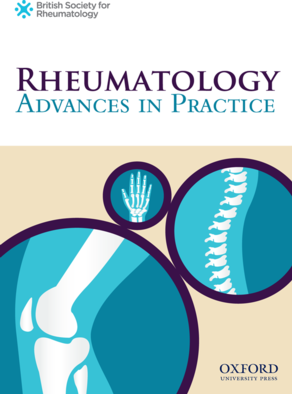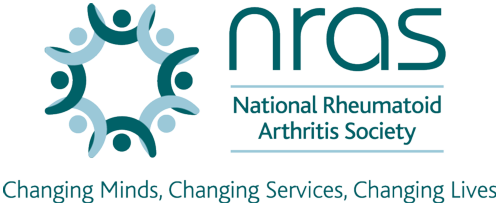 Summary of article published in Rheumatology Advances in Practice on 5 January, 2021
Summary of article published in Rheumatology Advances in Practice on 5 January, 2021
“Disease impact of rheumatoid arthritis in patients not treated with advanced therapies; survey findings from the National Rheumatoid Arthritis Society”
Authors: Elena Nikiphorou, Hannah Jacklin, Ailsa Bosworth, Clare Jacklin, Patrick Kiely
Background
In 2020, NRAS conducted a survey amongst its members and non-members who had RA with a disease duration more than 2 years, who were not on advanced therapies (i.e. biologic/biosimilar or targeted synthetic DMARDs (JAK inhibitors)), with the aim of revealing the everyday impact of living with RA in people not treated with advanced therapies. It aimed to assess in detail a wide range of aspects of quality of life and everyday living using the RA Impact of Disease (RAID) patient reported outcome questionnaire and other measures of the impact RA (on work).
Introduction
It is widely established that prompt and effective treatment in RA using tight control (treat-to-target) strategies improves disease outcomes. (For more information on tight control, please see our booklet ‘Living Better with RA’ and our website). The aim of tight control is to get disease into remission, or if that is not possible, as low a disease activity state as possible. The 28-joint count Disease Activity Score (DAS28) is used in the UK to determine how well disease is being controlled by current medication, and assess eligibility to move on to advanced therapies, if standard disease modifying drugs are not working well enough (current NICE guideline requires a DAS 28 of greater than 5.1 for a patient to be considered for moving onto advanced therapies).
Results
There were 612 responses from patients having an average age of 59 years. 88% were female and 37.7% had a disease duration of 2–5 years and 27.9% a disease duration of 5–10 years. In the last year, 90% had reported a flare of their RA, with more than 23% reporting six flares. As part of the survey, participants completed the RAID questionnaire which measures 7 domains: pain, functional disability assessment, fatigue, sleep, physical wellbeing, emotional wellbeing and coping. Only 12.4% of participants recorded an ‘acceptable state’ as measured by the scoring system for the RAID questionnaire. On an individual patient level, a score below 2 is deemed ‘a patient acceptable state’ on a scale of 0-10. More than 50% of participants scored each of the seven domains in the high range (indicating a worse state); 74.3% scored sleep problems and 72% fatigue in the high range.
 Difficulties at work were measured using a selection of questions taken from the Work Productivity and Activity Impairment (WPAI) questionnaire. A need to change working hours was reported by 70%. The survey results showed increasing difficulties with daily physical activities. Reduced emotional and physical well-being in the past week were all strongly linked to levels of pain reported as well as number of flares and ability to cope. The total RAID score strongly predicted the number of flares people reported.
Difficulties at work were measured using a selection of questions taken from the Work Productivity and Activity Impairment (WPAI) questionnaire. A need to change working hours was reported by 70%. The survey results showed increasing difficulties with daily physical activities. Reduced emotional and physical well-being in the past week were all strongly linked to levels of pain reported as well as number of flares and ability to cope. The total RAID score strongly predicted the number of flares people reported.
Key outcomes from this study
- In established RA, patients who are not on advanced therapies, indicate high levels of suffering as reported by the RAID.
- The RAID ‘acceptable state’ is very uncommon.
- High levels of pain, physical disability, sleep difficulties and fatigue are key symptoms experienced.
To read the full paper, go to the news section of the NRAS website.

